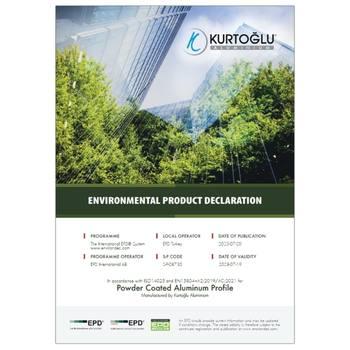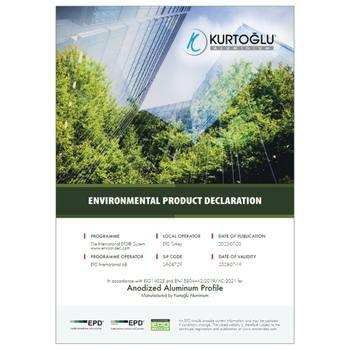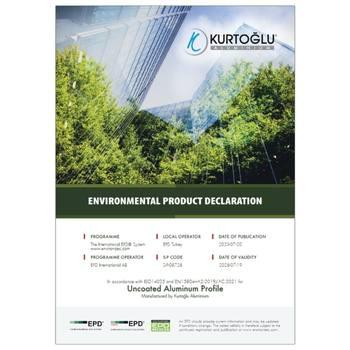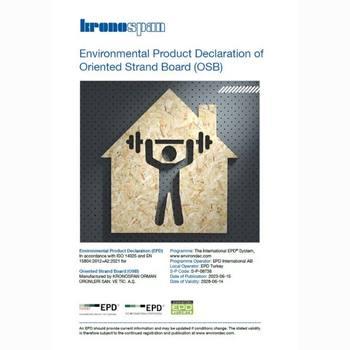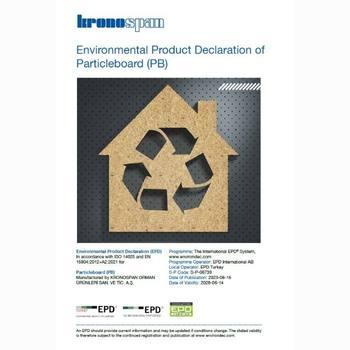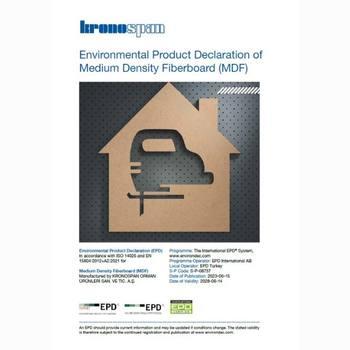
S-P-08797
Astas AluminyumAnodized Aluminium Profile
The production process in the rolled aluminium profile facility begins with the supply of cylindrical aluminium billets. Once these aluminium billets arrive at the facility, they are first weighed, and then they are stacked within the raw material entry unit. Subsequently, these billets undergo a preparation phase tailored to meet customer requirements. Then, the prepared billets are conveyed to the loading machine and subsequently dispatched to the extrusion unit.
The production of aluminium profiles relies on the extrusion process, which consumes electricity, natural gas, and water. Our extrusion lines are utilized to manufacture aluminium profiles for a wide range of industries and applications.
The process starts with the heated billets sourced from the raw material input unit, reaching temperatures between 440-450ºC in the billet furnace. The billets, heated in the furnace, are then precisely cut to meet the specific order requirements while being adhered to the mold with controlled pressure. The mold aids in shaping and producing the profile. The profiles emerging from the press are allowed to cool on designated benches, with any profiles exceeding 500ºC being cooled using fans.
Once adequately cooled, the profiles undergo stretching in a dedicated machine, followed by flattening and transfer to the saw for precise cutting according to the customer's specified length. Subsequently, the profiles are subjected to hardening within a thermal (artificial aging) oven. Quality checks are performed to verify the hardness of the profiles upon exiting the thermal furnace, after which they are dispatched to the eloksal unit according to customer demand. Among the many types of coatings used, anodizing stands out as one of the most commonly utilized.
Anodizing is achieved through an electrochemical process that thickens and strengthens the thin natural oxide coating already present on the aluminium.
The anodizing process involves several essential steps. Initially, pretreatment is carried out using acid/alkali solutions to remove dirt, grease, and impurities from the surface. Subsequently, an etching process is applied to roughen the surface. Finally, the profiles to be coated are immersed in an electrolyte and passed through it using direct current. This process utilizes aluminium plates to create an aluminium oxide surface on the profiles. To ensure the quality of the products completed in the anodizing bath pools, the operator conducts measurements to check the coating thickness. Products meeting the quality standards are prepared for shipment in line with customer requests.
Anodizing is a preferred process for several reasons. Firstly, it enhances the corrosion resistance of the aluminium profiles, extending the product's lifespan. Additionally, the anodizing process offers an elegant appearance, with a wide range of color options available.
Intended Use of Product
We produce special or standard aluminum extrusion profiles for many different sectors. The most common applications of our aluminium are automotive, food processing, construction industries. It is used for structural glazing, glass houses, green buildings, structural buildings, partitions, doors, and windows.
CPC: 41532
ISO 14025 and EN 15804:2012+A2:2021
Registration & Validity
COMPANY INFORMATION
Astas Aluminyum
Astas Alüminyum has been a prominent player in Turkey's aluminium profile industry since 1974. The company is headquartered in Yeşilköy, Istanbul, and operates an integrated plant in Çorlu, Tekirdağ, with a production capacity of 24,000 tons. This production capacity is spread across three extrusion lines, with capacities of 2500 tons (8 inches), 1800 tons (7 inches), and 1400 tons (6 inches). With over 45 years of experience in the industry, Astaş Aluminium has expanded its presence to the international market, serving numerous countries in Europe, Turkic Republics, the Middle East, and North Africa with its high-quality products.
The Çorlu plant employs over 350 people and boasts an annual production capacity of 11,000 tons for anodizing, 6,000 tons for powder coating, 800 tons for thermal insulation, 200 tons for wood coating, as well as over 1200 molds, 3 machining centers, and 4 sawing machines. In addition to prioritizing product and service quality, on-time order delivery, and meeting customer expectations, Astaş Alüminyum adheres to globally recognized quality standards such as Qualanod, Qualicoat Seaside, IATF 16949, ISO 9001, ISO 14001, ISO 45001, ISO 27001, ISO 50001, GOST R, TS EN 15088 (CE 2195), TS 4922, TS EN 12020-1, and TS EN 755-1.
Astas Alüminyum is committed to minimizing the environmental impact of its activities and products, efficiently utilizing limited natural resources and energy, and raising awareness among its employees and suppliers about these sustainability efforts. These principles form the cornerstone of its integrated management policy. Astas Alüminyum supplies profiles to various industries, including furniture, automotive, white goods, medical equipment, and architectural systems, among others.
Astas Alüminyum has been a prominent player in Turkey's aluminium profile industry since 1974. The company is headquartered in Yeşilköy, Istanbul, and operates an integrated plant in Çorlu, Tekirdağ, with a production capacity of 24,000 tons. This production capacity is spread across three extrusion lines, with capacities of 2500 tons (8 inches), 1800 tons (7 inches), and 1400 tons (6 inches).
With over 45 years of experience in the industry, Astaş Aluminium has expanded its presence to the international market, serving numerous countries in Europe, Turkic Republics, the Middle East, and North Africa with its high-quality products.
The Çorlu plant employs over 350 people and boasts an annual production capacity of 11,000 tons for anodizing, 6,000 tons for powder coating, 800 tons for thermal insulation, 200 tons for wood coating, as well as over 1200 molds, 3 machining centers, and 4 sawing machines.
In addition to prioritizing product and service quality, on-time order delivery, and meeting customer expectations, Astaş Alüminyum adheres to globally recognized quality standards such as Qualanod, Qualicoat Seaside, IATF 16949, ISO 9001, ISO 14001, ISO 45001, ISO 27001, ISO 50001, GOST R, TS EN 15088 (CE 2195), TS 4922, TS EN 12020-1, and TS EN 755-1.
Astas Alüminyum is committed to minimizing the environmental impact of its activities and products, efficiently utilizing limited natural resources and energy, and raising awareness among its employees and suppliers about these sustainability efforts. These principles form the cornerstone of its integrated management policy.
Astas Alüminyum supplies profiles to various industries, including furniture, automotive, white goods, medical equipment, and architectural systems, among others.

